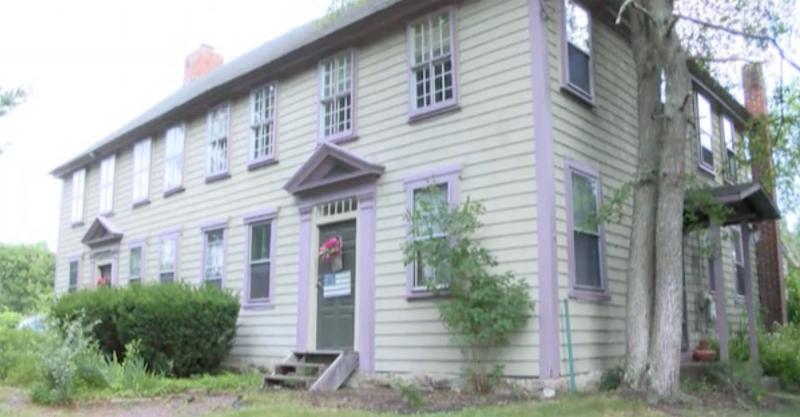Historical society builds ‘digital library’ of Dartmouth history
The Dartmouth Historical and Arts Society is far more than a non-profit organization offering occasional speakers and lectures: It is transforming into a living, online resource for Dartmouth’s rich, illustrated history.
It’s part of a mission to transform the Society’s website into what webmaster and volunteer Dan Socha describes as a “digital library” for history buffs or those merely curious about the region’s history.
Over the past few years, he, along with Society President Bob Harding and the Society’s volunteers, have added everything from genealogy to early land records to the Society’s online website.
“The soul of a community is brought forth by the study of its history,” Socha said. “How we relate to persons, places, and things.”
Socha himself is a native of Detroit, but became embedded in the town’s history after piecing together the 300-year history of his Dartmouth home. Relying heavily on genealogy records, he vividly remembers discovering the grave of a person who used to live in his home at a cemetary, and felt instantly connected to the family.
“There’s so much rich history in Dartmouth that many people don’t even know about,” Socha said.
Harding noted few people are aware of several “firsts” that have taken place right in Dartmouth, including the first battle for the separation of church and state, when constable Phillip Cummings refused to collect a minister tax for the Plymouth Colony and was jailed for it.
Socha took that experience and philosophy to guide the direction of the Society’s digital and archival initiatives. Teaming up with Dartmouth Community Television, all of the Society’s Sunday lectures and special events are televised and available to watch online.
Most recently, the Society worked with a Quaker meeting to painstakingly archive 6,000 pages of records covering nearly 250 years of Quaker history in Dartmouth.
“That was a big project -- a lot of that was handwritten notes,” Socha said.
More than paper records are the Society’s collection of maps, which are all available online. Maps range from village and street maps to indexed maps of early Dartmouth settlers and their homesteads, which were manually indexed and written out to correspond to families to make searching easier.
The Society also maintains a collection of the town’s proprietors records, painstakingly transcribed from original handwritten copies of records detailing 18th century land purchases and transfers.
The website even includes resources for genealogists, which ties heavily into historical research because of how many gaps or missing pieces of information can be filled in by researching the family lineage of a particular Dartmouth resident.
The website includes extensively researched family trees for well-known Dartmouth families, including the Potters, Helfands, Gidleys, Tuckers, Russells, Ricketsons, and Motts. For those that want to start their own research, links to outside guides and resources are also a click away.
Despite all that has been done so far, there is still much to be done. The Society receives little support from the town, outside of a lease for the 1871 Russells Mills Schoolhouse, and relies heavily on volunteers.
Harding said as the Society plans out its next big projects, volunteers are always needed, from researches to people to transcribe handwritten records into computerized records. Harding hopes to create a “toolkit” to make volunteering for such projects easier, by providing, for example, hardware to better read and transcribe paper records.
And, of course, the Society’s plethora of lectures and activities are continuing as well. The Society hosts regular Sunday afternoon lectures featuring historical topics and people, works with Dartmouth Public Schools to host living history events, and initiatives to promote historic preservation. For more information about the Society, visit dartmouthhas.org.











